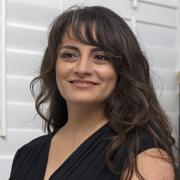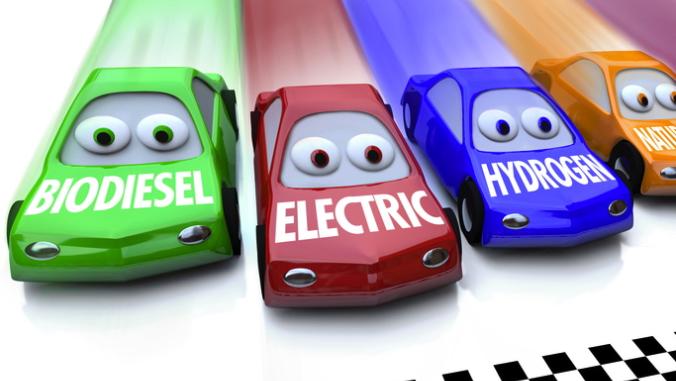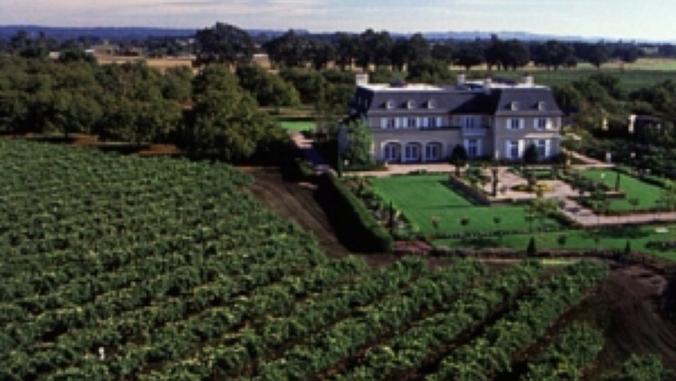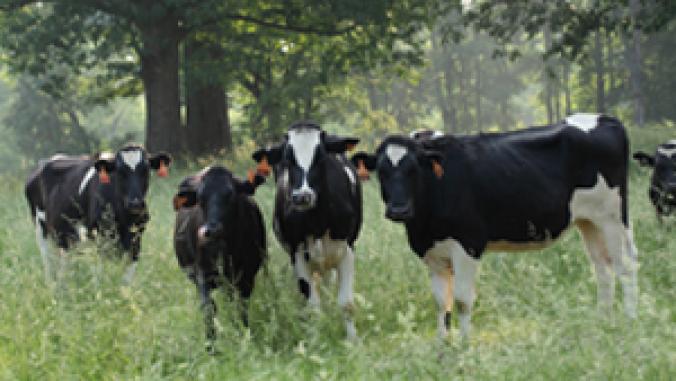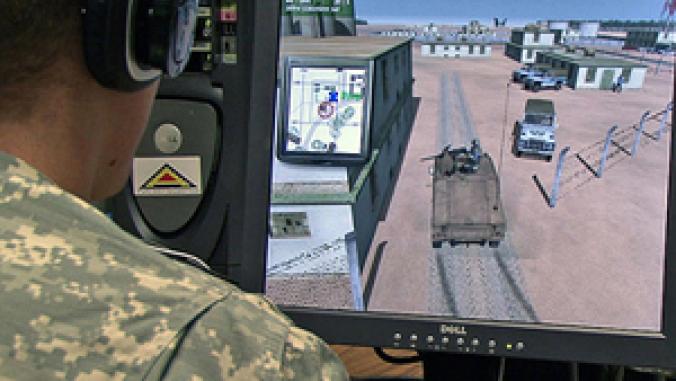IF11 Preview: GE's Mark Vachon on Lessons from the Ecomagination Challenge
<p>In the run-up to our upcoming Innovation Forum, GE's Mark Vachon explains how the Ecomagination Challenge changed the way GE does business and thinks about innovation.</p>

In the runup to our Innovation Forum 2011, we are conducting a number of short interviews with some of the presenters at the event, which takes place October 11-13 in San Francisco.
Our latest preview comes from Mark Vachon, GE's vice president of Ecomagination, the company's sustainability strategy that has generated $85 billion in revenue through last year. The company took the initiative to the next level with its Ecomagination Challenge, a $200 million experiment that taps the ideas of students and external businesses and entrepreneurs to solve our energy challenges.
In some ways, the Ecomagination Challenge changed the way GE does business, Vachon said, particularly in the way it works with partners. In this interview, he offers a sneak peek of his presentation at our upcoming Forum and discusses what the Ecomagination Challenge has taught GE about innovation.
Tilde Herrera: Would you mind offering us a short sneak peek on what you'll be sharing with us at the upcoming Innovation Forum?
 Mark Vachon: Sure. I think it's important for me to first start with grounding the audience on just exactly what Ecomagination is. That's going be fairly important. There may be some in the audience who are vaguely familiar, but for me, it's an important foundation to talk through.
Mark Vachon: Sure. I think it's important for me to first start with grounding the audience on just exactly what Ecomagination is. That's going be fairly important. There may be some in the audience who are vaguely familiar, but for me, it's an important foundation to talk through.
The emphasis will be on that being our business strategy that says fundamentally, we've been presented with this false choice as we rebuild the infrastructure of the world to take care of 9 billion people, and with this idea that you have to pick between great economics and great environmental performance. Our belief is it is a false choice and that (through) true innovation we can deliver both and we have a history of doing that. And in the process, innovation is at the heart of that but in that we're an economic enterprise, we believe we can deliver on that value proposition and actually grow faster.
I'll talk a little bit about where Eco is, maybe a little bit about where Eco's going. The sources of innovation, I think, are important. I certainly would talk about our experience in the Ecomagination Challenge over the last year and a half.
TH: The Ecomagination Challenge is something that we've talked about internally at GreenBiz. Can you give us a thumbnail sketch of that and also talk a little bit about what that experiment has taught GE about innovation?
MV: Sure. You know, we were very pleased about how the first five years of Ecomagination turned out. As we took a pause and sort of reflected on what we wanted to see over the next five years, we really said now is the time to sort of double down and open up. The doubling down relates to our commitment to invest in the space, moving from $5 billion to $10 billion over the next five years, doubling down on our commitment to what we call 'Walk the talk.' That is what we're doing to reduce our own footprint, energy intensity, greenhouse gas emissions and water usage. But also it's this idea of opening up and this is really where a new commitment to partnerships and innovation comes into play.
The Challenge is certainly one of the most robust dynamics about that but I'd also say we've really reached out and partnered with lots of different entities -- whether those are governmental agencies, academics, smaller companies -- just trying to get at what the problem set is more broadly and sooner, and to be more relevant in the solutions.
I think we're finding that through partnerships: 1). We can source new and interesting ideas that we wouldn't get inside the four walls of the company. 2). We get at the problem set better; and 3). We get to the answer and commercial success sooner.
Eco Challenge, I think, taught us lots of things, that the robustness of ideas out there is just infinite. There were challenges to that: How does a company the size of GE work with, in some cases, even pre-revenue companies? I think that's been a fascinating experience. We've got to be creative and flexible on the models in which we partner with various organizations.
TH: Can you give us a couple of examples of technologies that have come out of that challenge?
MV: I think there've been some really interesting ones. One I would point to is our acquisition of FMC-Tech, which is a company with a real-time power line monitoring capability technology. They came out of the "Power the Grid" phase of Ecomagination Challenge. Utilities, of course, their principal asset is that infrastructure, and increasing the intelligence on how those assets are performing, I think, should be really neat and we're excited about that.
Sentient Energy has a really interesting capability to monitor, track and analyze all kinds of characteristics of broad systems, certainly in the smart grid space.
Synapsis has real capability in data center management, which increasingly is a massive energy user.
I like this one: Suntulit, which we got in the second phase of the Eco Challenge, "Powering Your Home." It's all around getting much more intelligent on room-to-room energy usage. You know, I'm here in my Wisconsin home. It's my wife and I, and very rarely, my teenage son, and we heat and cool all the rooms equally. Suntulit increases the intelligence of people like us (laughs) and draws patterns of usage and, as a result, can target 20 percent energy reduction. So those are some of the technologies that came out of the Challenge.
TH: Great. So, you touched on it before but I'm hoping that maybe you could expand a little bit on how the Challenge has impacted not just the way that GE does business, but the way that it also partners with other businesses.
MV: Sure. Again, I think it's building flexibility into the process. One of the structural changes at GE as a result of the Challenge is 1). We've sort of confirmed that we have a whole new source for what I call "filling the funnel" of innovative ideas. But more so, it's establishing an infrastructure in my organization and a funding resource to take those ideas, largely at an early stage, and use one of the values of GE -- and that is pretty significant operational experience, great industry depth in these spaces and huge global distribution capability – to take these ideas that have been put into the funnel, so to speak, and scale and commercialize those ideas. That's really where the magic is.
It's not so much investment or partnership and ideas, but how do you get these ideas to meaningful scale? I think that's one of the examples of how the Eco Challenge has really structurally changed how we operate.
TH: Can you comment on how GE will use crowdsourcing in the future, not necessarily just with the Challenge, but do you think that you'll take this tool and apply it in the future?
MV: Yeah, it's interesting. It's taken on an incredible life of its own and extended the fundamental concepts of how do you open up -- I'll call it a network -- to get different constituents engaged, new ideas and manage those ideas.
The examples would be that we're going to run an Ecomagination Challenge in China. We've used it in our energy business, actually internally. So customers have presented ideas or questions that they'd like addressed and we tap into the broad intelligence of GE employees across the employee population to help offer solutions.
And so I think the fundamental concept of engagement, sort of endorsing and soliciting information to help solve these problems, can be applied in just an almost infinite set of directions.
TH: Do you have any advice that you would share with other companies?
MV: Spend plenty of time planning it because once you catch the bus, you know, your nose can get hurt. Even at a company the size of GE, the integration between the four venture capital firms -- the, I'll call it the "casting of the net" in the crowdsourcing of ideas -- identifying and reviewing 5,000 different business plans is an amazing amount of work. Every one of those deserves some sort of attention and respect. And so one, I would endorse it. I think it's healthy for almost any organization of any size because the moment you believe you know it all inside your four walls is the beginning of the end.
But it does take some infrastructure and discipline and resources to not only just turn on the request but do something with it and take it to the fruition of innovation, not just the beginning of innovation.
TH: Great. Mark, is there anything that you would like to add?
MV: No, I'm excited about it. I think this conference is on the right subject. Ideas are what will get us substantial progress in this space.
Photo by Goodwin Ogbuehi, http://flickr.com/photos/yoshikatsu.
